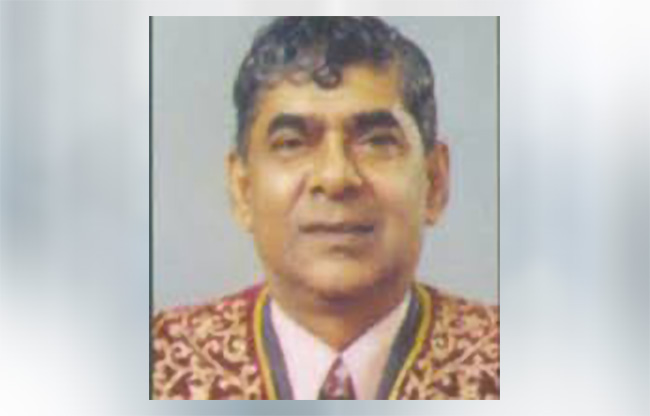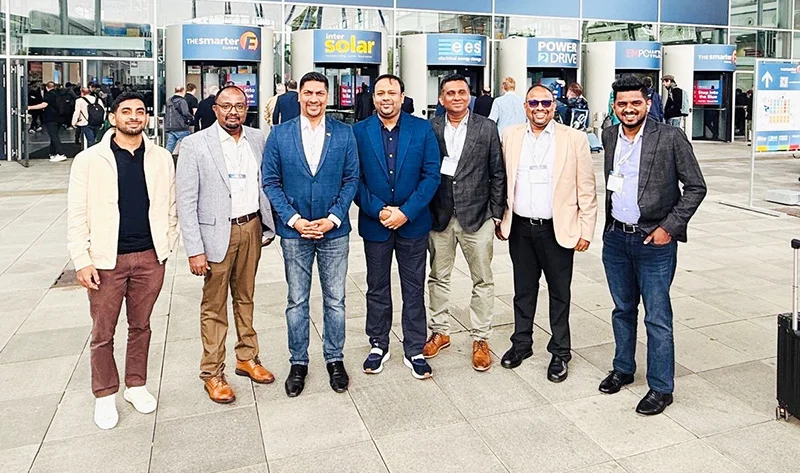Business
How the University of Peradeniya has weathered the politico-economic storms of the decades

Extracts from the speech delivered by one of Sri Lanka’s most eminent historians, Emeritus Professor W.I. Siriweera, on being conferred the Degree of the Doctor of Letters by the University of Peradeniya at its convocation of August 22nd, 2024.
Peradeniya University began in 1952 when sections of the old University College in Colombo including the Faculties of Law, Arts, Oriental Studies, Agriculture and Veterinary Science were shifted there with around 1200 students. They were accommodated in five Halls of Residence: Jayatilake, Arunachalam, Marrs, James Peiris and Hilda Obeysekara. Halls of Residence have proliferated subsequently and according to the UGC statistics the internal student population at Peradeniya in 2022 was 15108. Student profile has also changed substantially. The sex ratio of the Arts Faculty in 1960 was 56.5 per cent males and 43.5 per cent females. This has changed over the years and in 2008/2009 the approximate percentage of females has increased to 79 per cent and by 2022 to 81 per cent. The percentage of girls in Agriculture, Dental Sciences, Veterinary Science and Allied Health Sciences is also relatively high.
In student politics, the traditional left was powerfully represented in the campus until late 1960’s. The Fourth International Trotskyites dominated the scene while there were quite a few Moscow wing or Peking wing communists. They agitated against and highlighted global events. For example, in June 1960, the untimely demise of the African leader Patrice Lumumba was sufficient reason for the anti-imperialist, anti bourgeois, socialist to the core intellectuals in training, to march to Kandy in a massive procession to let the people of Kandy know of the great injustices perpetrated by the imperialists on the people of Africa.
It was a long procession carrying placards and banners with strong anti-imperialist slogans. We were crying out slogans asking the Imperialists to go home. But we did not know who these Imperialists were or where they were. Those who did not know the slogans cried out whatever that came to their mind: even the titles of popular Indian films at the time.
By 1968/69 all other Marxist or leftist groups were overtaken by the Janatha Vimukthi Peramuna and also later by its offshoot: the Peratugami Samajavadi Pakshaya. These two groups have dominated student politics up to now. Unlike the earlier left-wing politicians, they have focused attention on local problems within a Marxist framework. Agitations against student suppression, against limited financial allocations, against efforts to privatize education have been their main concerns.
Food culture in Halls of Residence has also changed considerably since the beginning of the university. Professor Halpe, one of the first undergraduates has stated that “life was luxurious”. According to him food served in the Halls of Residence was better than home cooked ones.
Campus meals in 1950’s and 1960’s were of a high standard. For breakfast, toast and eggs or boiled chick peas were served. Those who did not like eggs, got a sizeable chunk of Kraft cheddar cheese. For lunch, rice and curry with beef or fish with several vegetables were served. Dinner was varied with fish or beef alternated with western food like vegetable soup, beef steaks with mashed potatoes and bread. Dessert followed both lunch and dinner.
However, as everything else, food situation too has gradually deteriorated over the years. By early 1970’s serving meals at the dining tables was discontinued and students had to queue up with their meal tickets to be served at the food counters. Even this practice was stopped in the early eighties and since then undergraduates, academic staff living in Halls of Residence and sub-wardens purchase meals from canteens or prepare their meals in rooms.
Drama activities were at their best in mid nineteen fifties and early nineteen sixties. Professor E.F.C. Ludowyk had played a key role in this development. He had persuaded the university authorities to hire Jubal, an East European, on contract basis to promote Western drama. About the same period, professor Sarathchandra was instrumental in establishing the Open Air Theatre with the surrounding terraces.
His dramas such as Maname and Sinhabahu mesmerized the crowds in that balmy atmosphere. In the case of reviving Tamil folk theatrical traditions, professor Vidyanandan played a key role.
After mid nineteen sixties, Golden era of Peradeniya university came to an end. Cultural as well as academic activities declined. But the university has been resilient in trying circumstances and has faced up to challenges and realities of the time. Amidst changes, the university has survived with some of its spirit intact.
It is up to the academic staff, students and administrators to retain its spirit irrespective of the vicissitudes of the campus environment and campus life.
Business
World Bank may convert infrastructure loans into tradable assets

A game-changer for Sri Lanka’s capital market
As the global community convened for the World Bank Group’s 2025 Spring Meetings under the timely theme “Jobs: The Path to Prosperity,” one message stood out: prosperity in the developing world depends not only on physical infrastructure but also on strong financial systems.
Among the influential voices at this year’s gathering was Douglas L. Peterson, Special Advisor to S&P Global and a longstanding advocate of resilient market economies.
Drawing from a decade-long tenure as CEO of S&P Global, Peterson delivered key insights that resonate deeply with the challenges and opportunities facing emerging economies such as Sri Lanka.
Peterson stressed that while global capital is abundant, it doesn’t move indiscriminately. “It follows signals, namely, data, transparency, regulatory certainty, labour and market stability.”
“When investors look to deploy capital in developing markets, they’re seeking a solid financial infrastructure,” Peterson said. “That includes reliable data, transparent pricing mechanisms, independent credit rating agencies, and clearly defined bankruptcy laws.”
These factors may not make headlines, but Peterson underscored their essential role.
“Financial infrastructure enables confidence, and confidence attracts investment,” he said.
A key initiative Peterson is championing in collaboration with the World Bank is titled ‘Originate to Distribute’, a structured finance approach where loans are created by institutions like the World Bank but sold to private investors.
Traditionally, loans from development banks remain on their balance sheets for decades. This initiative proposes standardising and structuring such loans so that private investors can purchase, pool, and trade them – essentially converting infrastructure loans into a new, tradable asset class.
“This is about creating velocity and scale,” Peterson said. “If the World Bank can originate loans and distribute them to the private sector, every dollar stretches further. It helps close the multi-trillion-dollar infrastructure investment gap.”
For countries like Sri Lanka, where public finances are under pressure, such a model could unlock significant private capital provided the regulatory environment and financial infrastructure are prepared to support it.
In alignment with the World Bank’s focus on job creation, Peterson prioritised five sectors he believes are pivotal for employment growth in developing nations: infrastructure (both physical and digital), agri-business, healthcare, tourism, and manufacturing. The common thread across all these sectors, he asserted, is infrastructure.
“Build an airport and you get hotels, transport services and even carbon savings,” Peterson said. “A bridge not only connects communities but also cuts costs, travel time, and emissions.”
According to Peterson, infrastructure investment yields a multiplier effect, often generating an additional $1.40 to $1.60 for every dollar spent. It also catalyses other industries. Manufacturing depends on roads and ports; tourism needs transport and energy; agriculture requires logistics and storage; and healthcare relies on reliable access and communication systems.
Peterson’s reflections also touched on a more structural issue that Sri Lanka is currently facing; the need to develop robust domestic capital markets. He emphasised moving beyond a banking-dominated financial system toward one that includes institutional investors like insurance companies and pension funds.
“These institutions become long-term investors,” he noted. “They form the foundation for sustainable infrastructure investment. Homegrown capital reduces reliance on external debt and increases financial resilience.”
Peterson’s remarks serve as a timely reminder as job creation and long-term prosperity in Sri Lanka will not come through piecemeal efforts. Instead, they require coordinated investments in both physical and financial infrastructure, from better roads and ports to regulatory frameworks that inspire investor confidence.
Unlocking private capital through trust, transparency, and smart financial engineering is the way forward. And as leaders like Peterson have shown, the tools and models already exist. It is now up to policymakers and financial leaders in Sri Lanka to ensure Sri Lanka is ready to embrace them.
Douglas L. Peterson currently serves on the board of the UN Global Compact and was formerly CEO of S&P Global, where he expanded the company’s market capitalisation from $16 billion to over $150 billion. He also led the G7 task force on sustainable finance in 2021.
By Sanath Nanayakkare
Business
AHK Sri Lanka facilitates business delegation to Intersolar Europe 2025

The Delegation of German Industry and Commerce in Sri Lanka (AHK Sri Lanka) successfully organized a visitor delegation to Intersolar Europe 2025, held from 7 – 9 May in Munich, Germany. Recognized globally as one of the most significant and comprehensive trade fairs dedicated to the solar industry, Intersolar serves as a premier platform for showcasing the latest innovations in renewable energy and sustainable technologies.
The Sri Lankan delegation comprised senior representatives from prominent companies in the sector, including Mega Solar, Micro PC Systems, Eco Solar Rays, and Puwakaramba Building Solutions, reflecting the country’s growing commitment to advancing renewable energy solutions.
The primary objective of this visit was to provide Sri Lankan companies direct access to the latest developments in solar technology, including sustainable energy solutions, energy storage systems, e-mobility, floating solar applications, agrivoltaics and recycling solutions. By connecting local enterprises with cutting-edge technologies and global industry leaders, AHK Sri Lanka aims to facilitate the adoption of modern energy solutions in Sri Lanka and support the nation’s broader transition to a more sustainable and energy-secure future.
A key highlight of the delegation’s agenda was a strategic meeting with the organizers of Intersolar Europe. This engagement provided valuable insights into the exhibition’s future vision and fostered discussions on potential collaboration opportunities between German and Sri Lankan stakeholders in the renewable energy sector.
Further amplifying the value of the delegation, AHK Sri Lanka coordinated over 25 tailored B2B meetings between Sri Lankan companies and German/European industry counterparts. These curated matchmaking sessions enabled participants to explore commercial opportunities, initiate technical partnerships, and lay the groundwork for future investments and joint ventures.
Business
Prime Group appoints Umaria Sinhawansa as Global Brand Ambassador

Prime Group, Sri Lanka’s leading real estate brand with a 30-year legacy and international branches in Australia and Dubai, has named celebrated Sri Lankan music icon Umaria Sinhawansa as its Global Brand Ambassador. This partnership unites two Sri Lankan powerhouses to showcase local talent and excellence worldwide.
The collaboration aims to strengthen Prime Group’s global expansion while promoting Sri Lankan culture. Umaria, who bought her first property from Prime Group a decade ago, expressed pride in representing the brand. Prime Group’s Co-Chairperson, Sandamini Perera, highlighted Umaria’s embodiment of Sri Lankan heritage and global appeal, aligning with their mission to elevate the country’s real estate innovation.
Together, they aim to inspire trust, connect with international markets, and celebrate Sri Lanka’s cultural richness on a global scale.
-

 Features5 days ago
Features5 days agoSAITM Graduates Overcome Adversity, Excel Despite Challenges
-

 News5 days ago
News5 days agoDestined to be pope:Brother says Leo XIV always wanted to be a priest
-

 Opinion5 days ago
Opinion5 days agoDrs. Navaratnam’s consultation fee three rupees NOT Rs. 300
-

 Foreign News6 days ago
Foreign News6 days agoMexico sues Google over ‘Gulf of America’ name change
-

 Sports5 days ago
Sports5 days agoASBC Asian U22 and Youth Boxing Championships from Monday
-

 Features4 days ago
Features4 days agoChampioning Geckos, Conservation, and Cross-Disciplinary Research in Sri Lanka
-

 Business5 days ago
Business5 days agoDilmah – HSBC future writers festival attracts 150+ entries
-

 Business5 days ago
Business5 days agoBloom Hills Holdings wins Gold for Edexcel and Cambridge Education












